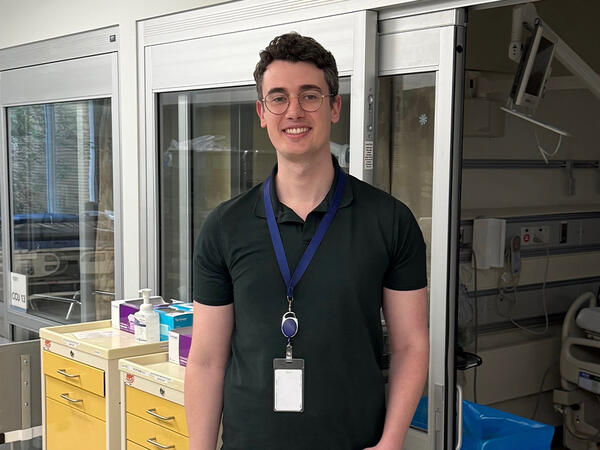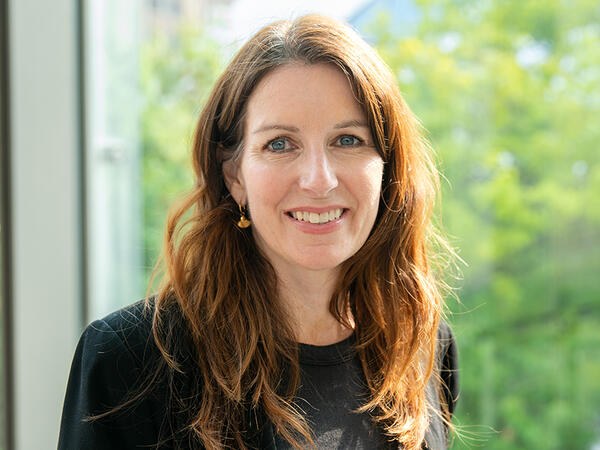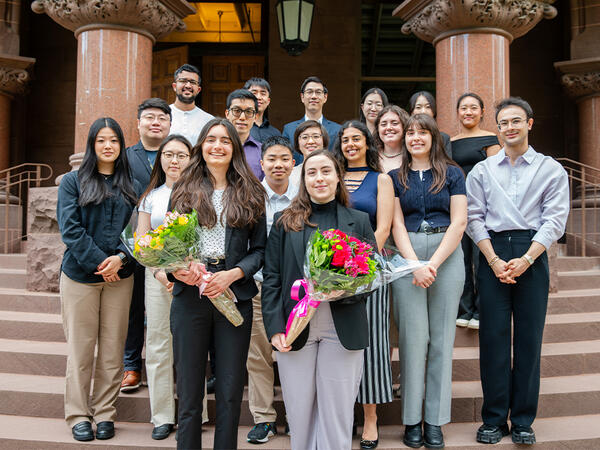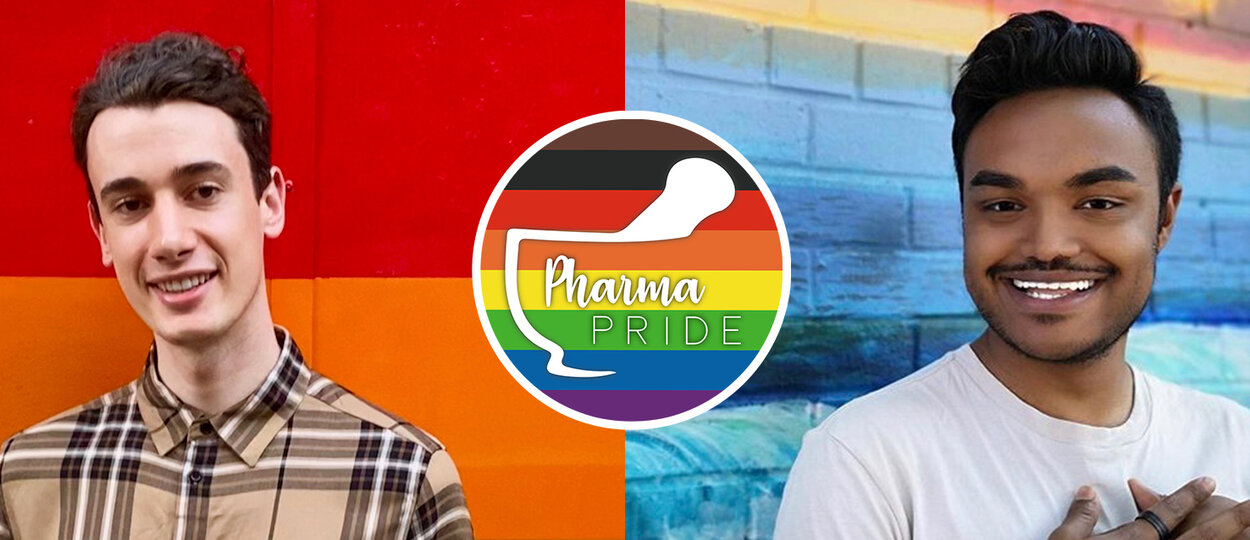Student club raises awareness of LGBTQ+ issues
Student-led clubs are one way that students can be involved in equity, diversity and inclusion (EDI) at the Leslie Dan Faculty of Pharmacy.
PharmaPride is the student group for LGBTQ+ individuals and allies at the Faculty. Its 13 executive members organize educational and social events that are open to all students, and share resources and information through social media. Past events have included a talk related to EDI, an educational dinner with an HIV pharmacist and a virtual movie night.
Adrian de Boer and Al-amin Ahamed are co-presidents of PharmaPride. Writer Eileen Hoftyzer spoke with de Boer and Ahamed about PharmaPride and why the club is important for the Leslie Dan Faculty of Pharmacy.
What is the goal or mission of PharmaPride?
Adrian de Boer (AdB): One thing that I really wanted was to create a safe space at the Faculty for LGBTQ+ individuals and allies to join and forge some friendships, and to organize events for LGBTQ+ individuals. We also educate on being a better ally and increase awareness of how to do that, whether it be in pharmacy practice or personal life.
Al-amin Ahamed (AA): We also have a huge role in advocacy. We make sure that we take the time not only to educate but also to stand up for social justice and make sure that people are aware of what the queer and LGBTQ+ community values.
Has PharmaPride become more intersectional in recent years?
AdB: The last co-president and I really made an effort to be more inclusive. There are many marginalized communities; people can be racialized and queer, for example, and these people are even more vulnerable than those who are white and queer. I thought our social media platform would be a good way to amplify these voices as they are the ones that need to be heard most!
We are trying to create more visibility and have more diverse perspectives to explain more issues. I can’t explain everything, and I don’t have the right to explain everything. Other people need to use their voices to explain certain issues.
AA: Having started our social media presence just last year, we have been able to take advantage of our executive team that intersects so many wonderful identities and perspectives. Each executive was given freedom to develop social media content relating to matters they felt were important to convey so that we have been able to develop and build a unique and diverse hub of resources, information and entertainment that students can freely access.
Why is it important for student pharmacists to know about LGBTQ+ issues?
AdB: As pharmacists, every one of us is going to come into contact with LGBTQ+ patients. We need to understand the appropriate terminology and how to be inclusive, and it may take a little more finesse, a different type of care, or a different type of knowledge to make these patients feel comfortable. If you’re not able to create a welcoming environment for these individuals, they’re not going to come to your pharmacy, or they may be upset with your care.
AA: During the induction ceremony in first year, you take a pledge of professionalism and essentially agree to uphold values to maintain the highest ideals of patient care, which consists of providing the best and most equitable care. As the future of pharmacy, it is prudent that we become aware of the unique needs of the many communities that we help, and that is why it is essential to learn about the appropriateness of care required for BIPOC and LGBTQ+ communities.
It is also important to note the long history of discrimination and inequity faced by these communities and how that is a barrier to addressing their hesitancy in receiving care now. Pharmacists play a vital role in building trust and rapport, which makes their job crucial in supporting these communities. That’s where PharmaPride comes in — we’re helping students and faculty become more aware and comfortable with addressing these topics.
What do each of you enjoy about being part of the group?
AdB: I enjoy being part of a group that has the opportunity to educate individuals and change opinions. People often come into the PharmD program with no idea of how to approach an LGBTQ+ patient, and some of them come in with overt or unconscious bias. It is a true privilege to be part of a club where we can be visible, challenge perspectives and hopefully help create a professional who will provide better care.
AA: I enjoy being in a space with people like me. When I grew up, I didn’t really know anyone who was queer and a person of colour. It was only until pharmacy and being part of group of people I could relate and talk to that I was able to feel comfortable in my own skin and identity.
AdB: I want to add that I appreciate that the Faculty is changing and thinking more about equity, diversity and inclusion when it comes to the development of curriculum. It is heartwarming to see even the smallest of changes. For instance, this year, I remember one care plan in my endocrinology class was based on a gay patient. Although this was such a small gesture and simple change, it had a large impact on me and made me feel more welcome within the school. I can’t wait to see further changes and look forward to the day that the whole Faculty feels like a safe space!
AA: There’s a lot of progress being made and a lot of interest in these topics, which is great, but there is still so much more that needs to be done to bring these conversations into the mainstream and really ingrain them in our curriculum — that’s what motivates me to do even more work with the club to continue the conversation.
By: Eileen Hoftyzer
More News
Image

Pharmacy alum’s research shows how full-scope practice improves cancer care
Honoured with a national award, Adrian de Boer says his residency experience was a powerful reminder that he's making a meaningful change to the pharmacy profession.
Read More
Image

Pharmacy alum passionate about helping community pharmacists practice to full scope
As a pharmacy leader at Rexall, Heidi Wittke uses frontline experience to lead initiatives that improve patient care
Read More
Image

Bridging Research and Industry: GRIP 2025 highlights innovation and real-world impact
Over 200 attendees from academia, healthcare, and industry gathered last week for the 2025 GRIP symposium, celebrating the depth and diversity of graduate student research.
Read More
